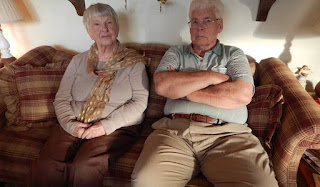 |
| Art courtesy George Arents Collection,
The New York Public Library. Retrieved from http://digitalcollections.nypl.org/items/510d47e4-8261-a3d9-e040-e00a18064a99 |
The CorporateHistory.net team sends best wishes for a superb New Year's weekend!
CorporateHistory.net, a custom publisher and history consultancy, offers tips and tools to leverage company history and business anniversaries.
 |
| Art courtesy George Arents Collection,
The New York Public Library. Retrieved from http://digitalcollections.nypl.org/items/510d47e4-8261-a3d9-e040-e00a18064a99 |
 |
| Norm and Betty Jo Anderson, Piketon, Ohio 2015. Credit: Lewis Wallace, Marketplace.org |
 Robert MacNeil (formerly of the MacNeil-Lehrer Report) covered that event too--he was in the motorcade. He lends his talent to a new oral history program that draws on recently discovered interviews. We Knew JFK: Unheard Stories from the Kennedy Archives can be heard in its entirety online at WeKnewJFK.org and is highlighted during this week's "On the Media" on public radio stations. as well. Worth a listen, especially for those of us who remember exactly where we were that fateful day.
Robert MacNeil (formerly of the MacNeil-Lehrer Report) covered that event too--he was in the motorcade. He lends his talent to a new oral history program that draws on recently discovered interviews. We Knew JFK: Unheard Stories from the Kennedy Archives can be heard in its entirety online at WeKnewJFK.org and is highlighted during this week's "On the Media" on public radio stations. as well. Worth a listen, especially for those of us who remember exactly where we were that fateful day.